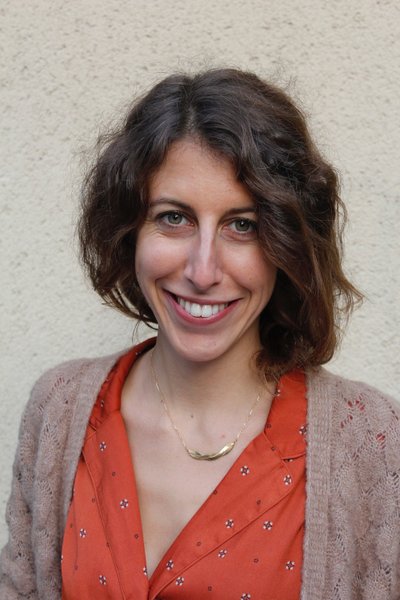The psychology of the job hunt: finding your career path is a science
Nov 07, 2022
5 mins


Journaliste indépendante
Have you ever felt completely lost when choosing an industry, profession, or training program? Have you ever felt like you’re on the wrong path while everyone around you seems to know exactly what they’re doing? Well, making the right career choices isn’t an innate skill reserved for those who were lucky enough to be blessed by the ‘career fairy’ at birth. In fact, there’s a science to it, it’s something you can practice and get better at throughout your life. Shékina Rochat, psychology practitioner and researcher for the careers service at the University of Lausanne, has the lowdown.
Can you tell us a bit about the science of making career choices?
Making career choices can be considered a science in the sense that it’s a process that is made up of several major steps. Anyone can learn how to make the right career choices, it’s a question of following these steps and knowing how to apply the right skills at each stage of the process.
What are these steps and what skills do you need?
When it comes to career choices, there are five steps:
- Firstly, you need good self-awareness, you need to know what you want and what you don’t. This requires self-examination and emotional intelligence
- Then, you need to explore and get to know the labor market so you can spot good opportunities when they arise. This step requires you to use your curiosity and ability to make the most of a situation when it occurs
- Once you’ve found an opportunity, you have to be able to make a decision, so you need to be able to analyze and weigh things up
- Next comes what we call the implementation. This means working out the steps you need to take to achieve your goal. If you want to change careers by following a new training program, then you need to work out how much it will cost, when you need to register, and so on. This step requires perseverance and knowing how to use your resources
- Lastly, once you reach your goal, the monitoring phase kicks in. This is where you need to pay attention to and check in with any changes to your inner self or professional environment. This will help you figure out if you need to alter your plan. So you need to be able to react and adapt to changes.
Some skills are more difficult to acquire than others, like emotional intelligence, for example. Do you have any tips for increasing self-awareness and identifying your aspirations?
What is frequently recommended to increase self-knowledge and develop your capacity for introspection is to reflect on your personality, your interests, and your values, for example, through tests or exercises. This allows us to better understand the way we function, whether we’re more introverted or extroverted, and things like that.
When it comes to developing your emotional intelligence—i.e. learning to identify your emotions—you can practice by making a list of emotions and asking yourself frequently, “What am I feeling right now?” Be specific with your words: is it fear or apprehension? Enthusiasm or joy? This gives you a better idea of what motivates you, scares you, etc. Ultimately it will help you figure out the sort of work that would best suit your personality.
Can all skills be learned? Is it possible to learn to make the most of unexpected situations and be more adaptable?
Of course! To be honest, most of us already have the required skills deep within; we just don’t think about applying them to help make our career choices. For example, many of us believe we got where we are by chance or an accident, but often what we come to realize is that we made the most of a certain situation. We might say, “I wanted to become a carpenter because I met one at a trade show once.” Ok, but how did you come to be at the show? And how did you get to talking about carpentry? And what did you do after the show? Did you go and find out more about how to train as a carpenter?
Often, when you take a step back, you realize that you set off a chain of events that led to you identifying professional opportunities you could benefit from.
How can we explain that some people find it easier than others to harness their skills to find their calling?
There are indeed some disparities between different people. Family environment and your socio-cultural background have a role to play. For example, if you come from a family that promotes exploring your individuality, then you’ll probably have developed better self-awareness than others who had to follow a certain role. Different life experiences also have a role to play: Did you have any hobbies growing up? Did you spend a lot of time around other people? Have you been exposed to different jobs?
One of the most difficult obstacles to overcome when navigating your career path is making ‘the right choices.’ How can you be sure you’re not making a mistake?
People who really struggle to make decisions have what we call chronic indecision, and it affects both their work and home life. Often there’s a lot of anxiety around making “the wrong choice” and the potential consequences of this. Generally, people with chronic indecision have low self-esteem.
If someone suffers from this kind of anxiety, we try to get them to think beyond their fear by asking them, “If you do that, what’s the worst that can happen? And if that happens, what would you do?” This gives people the chance to put their fears into words and realize that actually if that happens, they’ll know what to do. They come to see that the potential catastrophe isn’t as bad as they thought it was—there are always solutions.
What are the main things to keep in mind when it comes to making better career choices?
Career choices usually involve a training program, profession, or a specific job, and you need to understand the difference between each of these. Choosing a training program is often based on our academic interests and skills. For example, “I like chemistry, I’m good at math, I’ll try medicine.”
Then, when you have to pick a profession, it’s more focused on personality. For example, if you’re an introvert and like routine, you’d pick medical research over medical practice.
Later, when it’s about choosing a specific job, you have to look at your values. If helping people is what you consider most important and you end up doing research for a big pharma company then you might feel out of whack.
Making a career choice at any stage in your life is really about finding a balance between your interests, personality, and values whenever possible.
“Life design” is a term that’s often heard in the career advisory sphere—what exactly does it mean?
It’s a theoretical model that’s been much promoted with the evolution of technology: the world is changing quickly so you have to adapt. The basic idea of life design is that your career and personal life are intrinsically linked and that when deciding on your career path you shouldn’t only consider your professional aspirations but all areas of your life. We create a whole trajectory throughout our existence, we don’t follow a single pre-planned path for life, it’s about constantly reflecting on what we want to do and where we’re going.
Translated by Debbie Garrick
Photo: Welcome to the Jungle
Follow Welcome to the Jungle on Facebook, LinkedIn, and Instagram, and subscribe to our newsletter to get our latest articles every day!

More inspiration: Find a job

Written in the stars: How astrology can boost your job hunt
Looking for cosmic career advice? From Aries bosses to Virgo perfectionists, your zodiac sign could be your guide to landing the perfect role.
Dec 24, 2024

Find your dream job through the quiet power of self-awareness
"It’s much easier to reach your dream destination when you know exactly where you want to go."
Nov 27, 2024

5 top US cities that recent grads are flocking to
The job market remains a challenging landscape for recent graduates, and some are looking to move for better job prospects.
Nov 19, 2024

Spooky Special: 5 frightening fumbles to avoid on the job hunt
Boo! Don't let the job hunt be the scariest thing you do this Halloween. Here are 5 spooky mistakes and how to avoid them.
Oct 24, 2024

Are durable skills the key to lasting career success?
Ever wondered what really makes a career last? The key might be mastering the right skills that evolve with you.
Oct 15, 2024
The newsletter that does the job
Want to keep up with the latest articles? Twice a week you can receive stories, jobs, and tips in your inbox.

Looking for your next job?
Over 200,000 people have found a job with Welcome to the Jungle.
Explore jobs